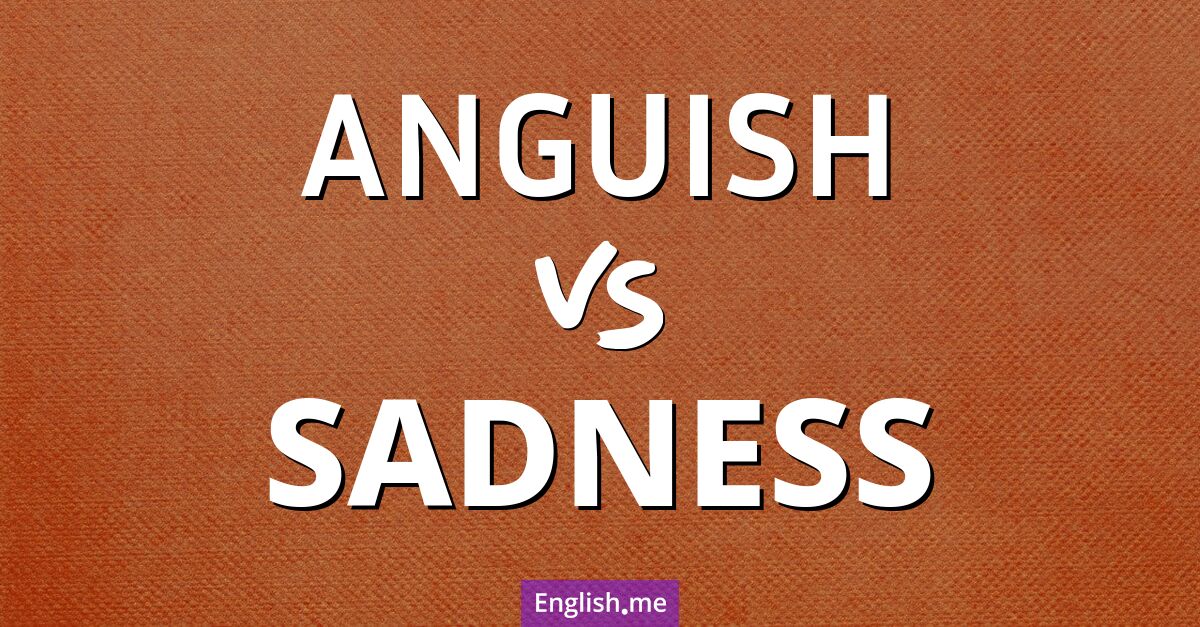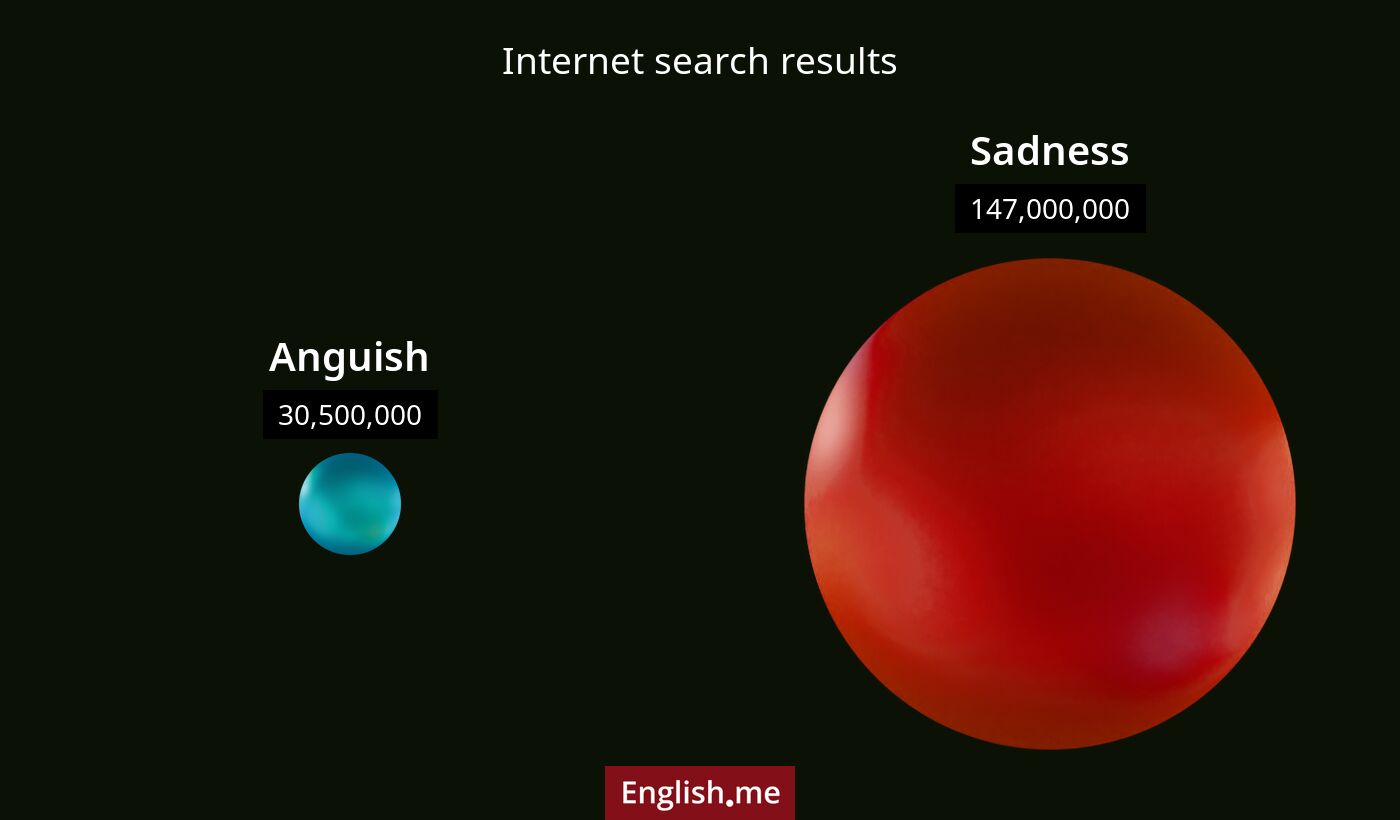"Anguish" vs. "sadness": unpacking emotions beyond the blue
Reviewed and edited by  Lloyd Cooper 10/10/2024, 18:49
Lloyd Cooper 10/10/2024, 18:49
English.me team member

 What is similar?
What is similar?
Both refer to negative emotions. Both can be experienced as a response to distressing events. Both words can describe internal emotional states.
 What is different?
What is different?
Anguish implies a more intense, acute level of suffering and distress than sadness. Sadness can be a more general and less intense emotion compared to the severe pain that anguish suggests. Anguish often suggests a combination of emotional and psychological pain, whereas sadness is more purely emotional.
 Which one is more common?
Which one is more common?

 Examples of usage
Examples of usage
Anguish- She was in anguish after hearing the devastating news.
- The look of anguish on his face was unmistakable.
- He felt a deep sadness after his friend moved away.
- The movie's ending left her with a lingering sadness.

 English
English español
español française
française italiano
italiano deutsche
deutsche 日本語
日本語 polski
polski česky
česky svenska
svenska Türkçe
Türkçe Nederlands
Nederlands